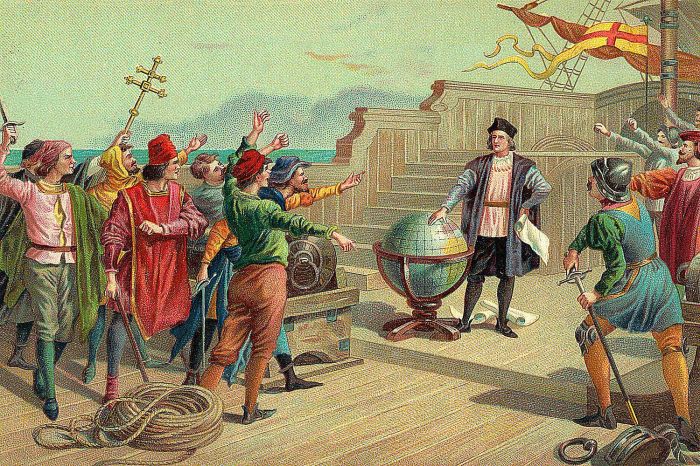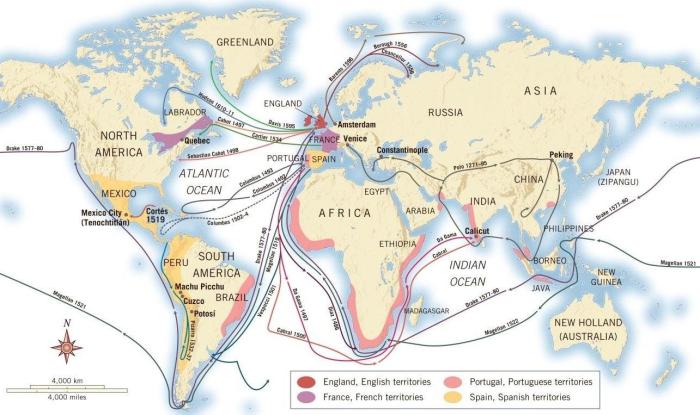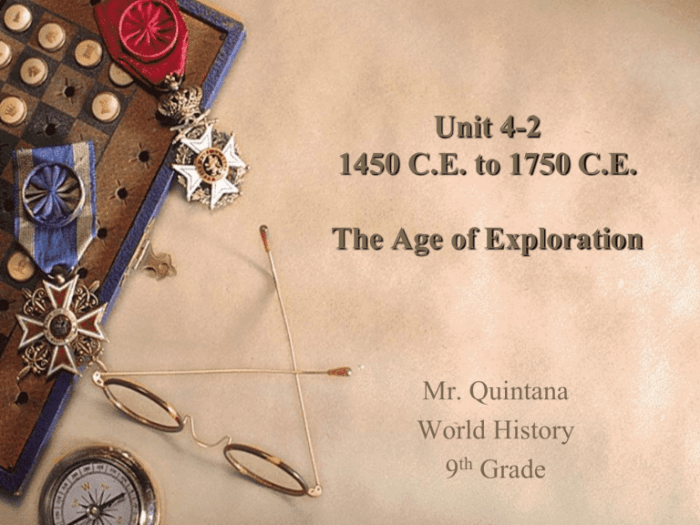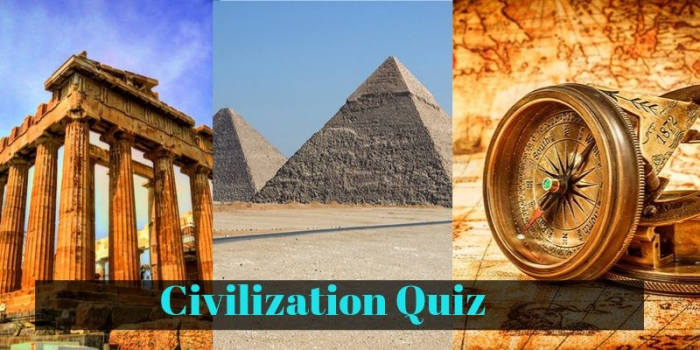How did state expansion facilitate exploration in 1450 to 1750 – The era between 1450 and 1750 witnessed an unprecedented surge in European exploration, largely driven by the expansion of state power. This expansion played a pivotal role in facilitating the exploration of unknown territories, shaping the course of history and laying the foundation for the modern world.
State expansion opened up new trade routes and markets, providing access to exotic goods and fostering the exchange of ideas. The desire for wealth and resources motivated rulers and merchants to support expeditions, fueling the search for new lands and riches.
Expansion of Trade and Commerce
State expansion facilitated exploration by opening up new trade routes and markets, fostering the exchange of goods and ideas. This expansion led to the establishment of several significant trade routes, including:
- The Silk Road:Connecting Europe with Asia, this route facilitated the exchange of silk, spices, and other goods.
- The Spice Route:Extending from Southeast Asia to Europe, this route brought spices, such as pepper and cloves, to European markets.
- The Trans-Saharan Trade Route:Linking North Africa with West Africa, this route traded gold, salt, and slaves.
These trade routes not only facilitated the exchange of goods but also contributed to the spread of knowledge, technologies, and cultural influences.
Advancements in Navigation and Technology: How Did State Expansion Facilitate Exploration In 1450 To 1750

State-sponsored expeditions played a crucial role in advancing navigation techniques and technologies. The development of the astrolabe, a device used to determine latitude, and the compass, which indicates direction, greatly improved the accuracy and efficiency of seafaring.
These advancements enabled explorers to venture farther into unknown territories, chart new coastlines, and navigate more precisely. They also contributed to the development of maps and globes, which provided valuable information for future expeditions.
Acquisition of Resources and Wealth
State expansion provided access to valuable resources, such as gold, silver, and spices, which fueled further exploration. The desire for wealth and resources motivated rulers and merchants to support expeditions in search of these commodities.
The discovery of gold and silver in the Americas, for example, led to a surge in exploration and colonization by European powers. Similarly, the spice trade with Asia became a lucrative source of revenue, driving competition and exploration in the Indian Ocean.
Political and Religious Rivalries

Political and religious rivalries between European states also contributed to the drive for exploration. Competition for land, power, and influence fueled the desire to establish colonies and expand territories.
For instance, the rivalry between Spain and Portugal led to the Treaty of Tordesillas in 1494, which divided the world into two spheres of influence for exploration and colonization.
Scientific and Intellectual Curiosity

State expansion fostered a climate of scientific and intellectual curiosity, leading to an interest in exploring the world and its wonders. Explorers were motivated by a desire to understand the unknown, discover new lands, and expand human knowledge.
This curiosity led to the establishment of scientific academies and the patronage of expeditions by enlightened rulers. It also resulted in the publication of travelogues and scientific reports, which disseminated knowledge about the world and inspired future generations of explorers.
Answers to Common Questions
How did state expansion contribute to the development of navigation technology?
State-sponsored expeditions provided the resources and support for the development and refinement of navigation instruments, such as the astrolabe and compass, enabling explorers to venture farther and more accurately into unknown territories.
What role did political and religious rivalries play in driving exploration?
Competition for land, power, and influence between European states fueled the drive for exploration, as rulers sought to expand their territories and assert their dominance.
How did scientific and intellectual curiosity contribute to the age of exploration?
State expansion fostered a climate of scientific and intellectual curiosity, leading to an interest in exploring the world and its wonders. This curiosity fueled the search for new knowledge and the discovery of new lands.
